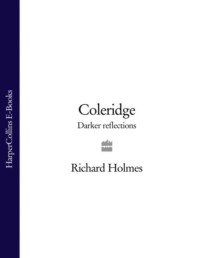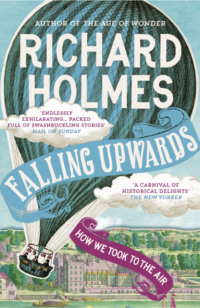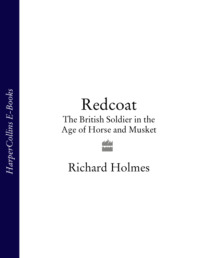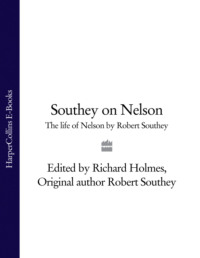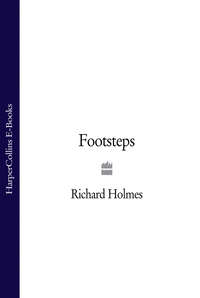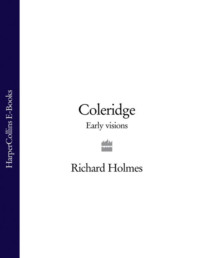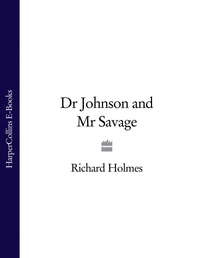
Полная версия
Sidetracks
When occasionally Chatterton was asked to exhibit his ‘originals’, he either prevaricated successfully or else forged with excruciating crudeness (forty-two scraps still survive in the British Museum) practically illegible parchments which he then aged with ochre, candle-flame, glue, varnish, or plain floor-dirt. Catcott and Barrett, the redoubtable double, stored them away without a murmur. At the same time they judiciously criticized his public forays into the local exchange of satirical verses. And had their noses, or rather their ears, nearly bitten off for it–
No more, dear Smith, the hackney’d Tale renew:
I own their censure, I approve it too.
For how can Idiots, destitute of thought,
Conceive, or estimate, but as they’re taught?
Say, can the satirising Pen of Shears,
Exalt his name, or mutilate his ears?
None, but a Lawrence, can adorn his Lays,
Who in a quart of Claret drinks his praise.
This poisonous piece, which continues for some hundred lines and is one among many, is gently accompanied by the following: ‘Mr Catcott will be pleased to observe that I admire many things in his learned Remarks. This poem is an innocent effort of poetical vengeance, as Mr Catcott has done me the honour to criticise my Trifles.’
At the same time, Chatterton was also writing this, for his own private satisfaction:
Since we can die but once, what matters it,
If rope or garter, poison, pistol, sword,
Slow-wasting sickness or the sudden burst
Of valve arterial in the noble parts
Curtail the miseries of human life?
Tho’ varied is the Cause, the Effect’s the same:
All to one common Dissolution tends.
And yet, all the while, the tonsured figure of Thomas Rowley was walking through the streets of Bristol or brooding by the apprentice’s chair in the office of John Lambert. Through Rowley’s eyes the scorn and enmity of authority, and the imminent threat of death, were transmuted. They assumed a bold narrative line which gloried in the simplicity of the issues at stake, and, as in ‘The Death of Sir Charles Bawdin’, marched forward in that hypnotic pageantry of primal emotions which the medieval ballad traditionally invokes:
King Edward’s soule rush’d to his face,
He turned his hedde away,
And to his broder Gloucester
He thus did speke and say:
‘To him that so-much-dreaded Death
Ne ghastlie terrors bringe,
Behold the manne! He spake the truth
He’s greater thanne a Kinge!’
‘So let him die!’ Duke Richard sayde;
‘And may echone our foes
Bend down they’re neckes to bloudie axe
And feede the carrion crowes.’
And now the horses gentlie drewe
Sir Charles up the highe hille;
The axe did glyster in the sunne,
His precious bloode to spille.
It was Coleridge, the great admirer of Chatterton, who wrote The Rime of the Ancient Mariner some twenty years later.
Chatterton tried other outlets. He sent a copy of an ‘original’ piece of a medieval painting catalogue to Horace Walpole in London. After an exchange of correspondence, Walpole somewhat callously rebuffed the young poet on the grounds that his material seemed suspect. Walpole, who had recently achieved a succès de scandale with his faked Castle of Otranto, should have known better. He suffered for it later. Chatterton had more success with the London publisher Dodsley of Pall Mall; and in May of 1769 he even managed to place one of his ‘medieval’ Eclogues in the newly founded Town and Country magazine. It made him increasingly restless. He chafed at Lambert’s office. He flung out extended satires with titles like ‘The Whore of Babylon’ and shocked many Bristol worthies by his bitter and scurrilous attacks. He took to producing execrable love-poetry, elephantine in its sub-Miltonic ornament, for his friends – his cap acquaintances – to give to their current amours. One can imagine how choicely it amused him. Possibly he had an affair himself. There was a certain Miss Ramsey. But time seemed to be running out. In the late summer of 1769, two of his intimates died. The first was Thomas Phillips, the extent of whose contribution and support we shall never know. Chatterton wrote a long elegy to him, but the pain was too close, and for the most part it is numb. There is one place, however, where a moment of intense atmospheric and visual sharpness breaks through, presaging Chatterton’s final achievement in the amazing ‘African Eclogues’ he was to write in the last weeks in London. The passage describes the shuffling figure of Winter who carries the frozen landscape about his shoulders like a cloak; perhaps also it describes a final vision of Phillips; or even of that other, inward Thomas, Thomas Rowley who was so blasted by the chill reception of a modern and indifferent Bristol:
Pale rugged Winter bending o’er his tread,
His grizzled hair bedropt with icy dew;
His eyes, a dusky light congeal’d and dead,
His robe, a tinge of bright etherial blue.
His train a motley’d sanguine sable cloud,
He limps along the russet dreary moor,
Whilst rising whirlwinds, blasting keen and loud,
Roll the white surges to the sounding shore.
The other friend was Peter Smith. He committed suicide.
Chatterton sat out the winter of 1769–70. Now he was seventeen. In April he made his bid for London, propelled by a moment of crisis which seems to have been partly stage-managed and partly genuine. As ever, the ambivalent mixture. ‘Between 11 and 2 o’clock’ on the evening of Saturday April the 14th, ‘in the utmost distress of mind’ Chatterton dashed off his ‘Will’ containing both verse and prose, with the clear indication that he intended to commit suicide: ‘If after my death which will happen tomorrow night before eight o’clock, being the Feast of the Resurrection, the Coroner and Jury bring it in Lunacy, I will and direct that Paul Farr Esq and Mr John Flower, at their joint expense, cause my body to be interred in the Tomb of my Father’s …’ This document was discovered by John Lambert on his clerk’s desk, and Chatterton was hastily hunted out, appeased, and released from his articles with the attorney, thus freeing him from all obligations in Bristol. Neither Lambert nor anyone else appears to have picked up the element of angry satire and pure youthful outrage which so clearly motivated Chatterton’s writing: ‘This is the last Will and Testament of me Thomas Chatterton, of the city of Bristol; being sound in body, or it is the fault of my last Surgeon; the soundness of my mind, the Coroner and Jury are to be judges of, desiring them to take notice, that the most perfect Masters of Human Nature in Bristol distinguish me by the title of the Mad Genius; therefore, if I do a mad action, it is conformable to every action of my life, which savour’d of insanity.’ Chatterton unfurls the idea of insanity like a battle flag: he shakes it under the nose of his elders, slyly mocking their own provincial limitations, their own humdrum eighteenth-century commercial notions of ‘Human Nature’. One recognizes a quality of icily controlled desperation. ‘Insanity’ was also his flag of freedom. Released from Lambert’s drudgery, his copy of ‘Æella’ sold to the obliging Catcott for a few paltry guineas, leave taken of his many cap acquaintances and firm promises of success made to his mother and sister, Chatterton caught the Bristol stage and journeyed up to the capital in a snow-storm.
The last four months of Chatterton’s life, those spent in London between the end of April and the end of August 1770, are the most closely documented of all, with some dozen extant letters of his to Bristol, and the material accumulated by Herbert Croft and published in Love and Madness (1780), from interviews with Chatterton’s landladies and fellow lodgers. The many essays and quirky ‘character’ tales which he contributed at this time to London journals also throw a vivid though oblique light on his changing fortunes. His two extraordinary ‘African Eclogues’, with their unique sense of tropical sweltering claustrophobia and almost hallucinogenic visions of tribal violence, are dated in May and June. And the last and greatest Rowley poem, ‘The Excelente Balade of Charitie’, belongs with certainty to the very end. The picture forms a coherent dramatic whole, though with a number of poignant and tragic omissions. It is the eye of the myth inherited, and then misinterpreted, by the Romantics.
The remaining chronology is simple. Chatterton first stays near relations in Shoreditch (the helpful Mrs Ballance); later, in June, he moves to seedier lodgings in Brooke Street, Holborn. He sells a Burletta to the Marylebone Gardens for five guineas, but it is not performed. He catches a ‘cold’, then apparently gets better. He writes songs, more journalism, works all night but earns nothing. His landlady offers him meals. He writes to Barrett that he wants to become a ship’s surgeon. He has conversations with Mr Cross, the corner chemist. He appears hungry; people see him less frequently. On the 25th of August 1770 his door is broken open and, in the words of the Coroner, he is found ‘to have swallowed arsenic in water, on the 24th of August, and died in consequence thereof, the next day’. Barrett’s account is as follows: ‘He took a large dose of opium, some of which was picked out from between his teeth after death, and he was found the next morning, a most horrid spectacle, with limbs and features distorted as after convulsions, a frightful and ghastly corpse. Such was the horrible catastrophe of T. Chatterton, the producer of Rowley and his poems to the world.’ At the end he even confused the surgeons.
3 ‘The Muses have no Credit here’
Yet that was nothing as compared with the confusion of the London literati. The first of ‘Rowley’s Poems’ appeared in an anonymous pirated edition of 1772, price half-a-crown; and five years later in 1777 the first major and authoritative collection appeared with over 300 pages of poems and a scholarly Introduction by Mr Tyrwhitt: ‘Poems, Supposed to have been written at Bristol, by Thomas Rowley’. Thereafter a steady flow of new editions, new Commentaries, new Appendices and Remarks and Observations set up something like a Chatterton Industry. (He even became voguish – ‘Chatterton handkerchiefs’ were sold in the street as ladies’ favours.) The confusion arose initially because the literary detection and polemics on the ‘Rowley or Chatterton’ issue rapidly became the prime aspect of the Chatterton affair. Very few writers attempted to make any estimate of the value of the poems themselves; almost no one considered the impact of Chatterton’s mixture of Gothic and simplistic styles and material on the hard, intricate, neo-classic sheen of contemporary verse; and no one at all realized the immense symbolic potential such a prodigy-poet, such a miracle of youth and ‘inspiration’ and inward, hidden creativity, would give to the later poets and theorists of the Romantic revolution. They were limited to their urbane and London-centred concepts of poetry, and they did not see what had happened. They did not see that already in Chatterton the eighteenth-century ‘cool’ intellect had been disestablished in favour of remote landscapes and distant provincial tones – the West Country, and shortly Cumberland, the Lowlands of Scotland, Northamptonshire (Coleridge, Wordsworth, Burns, Clare), and ultimately Italy and Greece (Keats, Shelley, Byron, Landor, Browning). This was later to be summed up in the feeling that went about among the poets that London, which had received and nourished Dryden, Pope and Johnson, had rejected and murdered Chatterton. London had turned her face away. The poets never really trusted London again until the 1890s, when gangling and fragile men like Ernest Dowson and Lionel Johnson began to woo her once more in an effete but insistent manner, telling her that she was as beautiful and mysterious as Paris after all, and drinking themselves stupid in her dingier bars.
The greatest critics of the time were deeply perplexed. Chatterton had broken the rules. He was too young. He was dishonest. He was a provincial. Worst of all, he was ‘uneducated’, lower class, a charity-school boy and an attorney’s clerk. The matter was impossible. In their judgements of his work, they found they were having to take into account both his circumstances and his youth, and this galled them because it was highly irregular and had nothing to do with the accepted neo-classical standards of aesthetic achievement. Indeed, their position is curiously close to the exclusive aesthetic orthodoxy of criticism today.
Thus Dr Johnson is recorded in 1776 by Anna Seward in one of his inimitable peremptory outbursts: ‘Pho, child! Don’t talk to me of the powers of a vulgar uneducated stripling. He may be another Stephen Duck. It may be extraordinary to do such things as he did, with means so slender; – but what did Stephen Duck do, what could Chatterton do, which, abstracted from the recollection of his situation, can be worth the attention of Learning and Taste? Neither of them had opportunities of enlarging their stock of ideas. No man can coin guineas, but in proportion as he has gold.’ The last remark somehow makes one wince: it had a tragic and literal application to Chatterton’s case, and the droptic Doctor – who had himself started out as a local schoolmaster – should have had more feeling than to use it. The ideals of ‘Learning and Taste’ take on a sharply elitist and self-complacent quality in this context; though they are powerful enough elsewhere. Most important, however, is the underlying argument: that something called ‘genius’ cannot be produced out of a hat – it requires a special milieu and a special training in which the ‘stock of ideas’ can be enlarged. These Chatterton did not, in the Doctor’s opinion, have; and hence, gold could not be coined from air. Johnson did in fact visit Chatterton’s birthplace, and it would be fascinating to know just how large a range of ‘ideas’ he imagined could be absorbed there, and just what his impressions of the milieu were.
At any rate, worthy of the attention of Learning and Taste it emphatically was not. Johnson’s opinion is still a representative one.
The opinion of Thomas Warton, poet laureate and equally weighty judgement, also implicitly condemned Chatterton for his lack of maturity and of ‘correct’ training and situation. Nevertheless, Warton’s attitude in the second edition of his monumental History of English Poetry (1776) is strikingly different to Johnson’s in that he at least appreciated how remarkably Chatterton had broken the rules and dazzled normal expectation: ‘Chatterton’, he surmised, ‘will appear to have been a singular instance of prematurity of abilities: to have acquired a store of general information far exceeding his years, and to have possessed that comprehension of mind, and activity of understanding, which predominated over his situation in life and his opportunities of instruction.’ In fact this is a judgement of an altogether different calibre, for in that slightly nebulous phrase – ‘the comprehension of mind, and activity of understanding’ – Warton is genuinely trying to reach for some (ultimately Romantic) concept of innate imaginative ability by which Chatterton could have reached out beyond his immediate limitations. All the same, Warton was no Lakelander but had the moral bottom of his age. He disapproved. In his final summary, he says this: ‘He was an adventurer, a professed hireling in the trade of literature, full of projects and inventions, artful, enterprising, unprincipled, indigent, and compelled to subsist by expedients.’ This was the same Chatterton that Keats was to call a ‘flow’ret’, blasted by cruel winds.
But fundamentally these opinions lack any awareness of the extraordinary dual relationship that Chatterton developed and acted out with his surroundings and native city, Bristol. For Bristol, in the present, was the focus for all his outrage and contempt; while Bristol, in the late-medieval past, was the projection of everything he loved and desired and imagined.
Historically, Chatterton’s Bristol of the 1760s was the second city in the kingdom, renowned – as say Birmingham is today – for its raw mercantile spirit, seething with new commercial enterprises; it was a city dominated by the power of local trading interests, and famed for its street riots, its civic pageants, its rowdy bought elections. There was a continuous cycle of demolition and new building, and the population was around 45,000 and increasing. The first recorded lock-out in England occurred in Bristol in 1762; and guild festivals, burnings in effigy of politicians and prize-fighting were all popular pastimes. Many of the streets were still unnavigably narrow, and goods traffic was often restricted to the same horse-drawn sleds which pulled Sir Charles Bawdin to his execution; now, however, they moved at high and unceremonious pace. Many shop doors and windows were hung with offensive advertisement sheets and boards; and one visitor complained that every single shop-boy seemed to be wearing silk stockings. Pope described it distastefully as ‘if Wapping and Southwark were ten times as big, or all their people ran into London’. The poet Richard Savage – who died there in misery and penury – apotheosed it as a city of
Upstarts and mushrooms, proud relentless hearts,
Thou blank of Sciences, thou dearth of Arts!
Living in such a city, it seems even more remarkable that Chatterton should have spent his time engrossed in old documents, or mooning round the shadowy vaulted nave of St Mary Redcliff reading the brasses, or gazing vacantly at the then blunted spire from nearby Temple Meads. But that, we know, is what he did.
A particularly vivid account was taken by Dr Milles from William Smith, a Colston Hall friend, and brother of the Peter Smith who committed suicide. ‘Chatterton was very fond of walking in the fields,’ he recorded, ‘and particularly in Redcliffe meadows; of talking with (Smith) about these MSS and reading them to him: “You and I” (says he) “will take a walk in Redcliff meadow, I have got the cleverest thing for you that ever was: it is worth half a crown to have a sight of it only, and to hear me read it to you.” He would then produce and read the parchment. He used to fix his eyes in a kind of reverie on Redcliff church, and say “this steeple was once burnt by lightning; this was the place where they formerly acted plays” ‘ (Dr Milles, Rowley, 1782). Chatterton’s ability to bring to life and dramatize the inanimate remnants of the past, even to display them to his friends as something still magically active in the present, is an essential element in the imagination which dramatized itself as Thomas Rowley. In this, St Mary Redcliff is a central feature, a palpable proof of both historical and psychological continuity. In these last two stanzas of Rowley’s second poem ‘Onn Oure Ladies Chyrche’, one can see exactly how Chatterton brings the stone to life:
Thou seest this mastrie of a human hand,
The pride of Bristowe and the Westerne lande,
Yet is the Builders vertues much moe greate
Greater than can by Rowlies pen be scande.
Thou seest the saints and kinges in stonen state,
That seemd with breath and human soule dispande:
As pared to us enseem these men of slate,
Such is greate Conynge’s minde when pared to God elate.
[dispande – swelling, expanding
pared – compared]
and then, his anger at the cheap mercantile and mediocre ambitions of his contemporary Bristolians rises also to Rowley’s tongue and is there transformed:
Well mayest thou be astounde, but viewe it well;
Go not from hence before thou see thy fill
And learn the Builders vertues and his name;
Of this tall spire in every countye tell
And with thy tale the lazing rich men shame.
Showe how the glorious Canynge did excelle,
How he good man a friend for kinges became
And glorious paved at once the way to heaven and fame.
For this Chatterton has condensed a stanza from Spenser, but with a characteristic and brilliant addition of a final clarion alexandrine which gives a tone at once both proud and deeply nostalgic. It is interesting to note the word on which the last stress of the completed poem falls, and settles.
These qualities of pride, nostalgia and hard ambitious anger probably find their finest expression in Rowley’s ‘Ælla: A Tragycal Enterlude’ with its high chivalric story-line and firmly localized Bristol setting. In the ‘Song to Ælla’ which forms a Prologue, Chatterton suddenly creates a beautiful and haunting melodic cadence of differing line-lengths, surging outwards and falling softly back, which is so far from the automated verse-movements of the eighteenth century, and so completely and richly Romantic in its uncircumscribed flux of emotions, that one begins to see why Keats and Rossetti held him in such special reverence. The bold Gothic effect of coloured violence is uniquely Chatterton’s.
Oh thou, or what remaines of thee,
Ælla, the darlynge of futurity,
Lett this mie songe bolde as thy courage be
As everlastynge to posteritie.
When Dacia’s sons, whose haires of bloode redde hue
Like kinge-cuppes brastinge withe the morning dew
Arrang’d in dreare array
Upon the lethale day
Spred far and wide on Watchets shore;
Then dydst thou furiouse stande
And by thy valiante hande
Beesprengedd all the mees withe gore.
The best comment ever made on Rowley’s curious language and spelling is by the modernist Irish poet, Austin Clarke. How often only a poet understands how another poet has worked. Clarke said: ‘To Chatterton, these bristling consonants and double vowels were like the harness and martial gear of medieval days. Plain words, mailed in strange spellings, might move like knights in full armour amid the resounding panoply of war.’
But for Chatterton in the other mercantile Bristol, the war was bitterly direct, and the weaponry of style was brittle and contemporary. There he did not summon up the gentle imaginative influence of Spenser, but instead he turned to radical political figures like Robert Wilkes and to Wilkes’ comrade in letters, the coarse and fluent satirist, Charles Churchill. So it came about that the poet who could lie gazing in Redcliff meadows and produce the hymn to ‘Oure Ladies Chyrche’, could also within a few months produce ‘The Whore of Babylon’. This is perhaps the liveliest of his many satirical sorties, clubbing right and left with his blunt-ended couplets. The formal subject is an attack on the Bishop of Bristol, on Lord Bute, and a good selection of King George III’s more obnoxious ministers; it is packed with names and slanders and scurrilities, and lasts unflaggingly for 500 lines. Towards the end Chatterton makes a decisive attack on the attitudes he abhorred – (Rowley nodding appreciatively in the background):
The Muses have no Credit here, and Fame
Confines itself to the Mercantile Name;
Then clip Imagination’s wings, be wise,
And great in Wealth, to real Greatness rise.
Or if you must persist to sing and dream,
Let only Panegyric be your theme:
Make North a Chatham, cannonize his Grace,
And get a Pension or procure a Place.
Damn’d narrow Notions! tending to disgrace
The boasted Reason of the Human Race.
Bristol may keep her prudent Maxims still,
But know, my saving Friends, I never will.
The Composition of my Soul is made
Too great for servile avaricious Trade –
When raving in the Lunacy of Ink
I catch the pen and publish what I think.
The final couplet gives a memorable picture, although the scholar E. H. Meyerstein discovered in 1930 how extremely closely Chatterton sometimes imitated Churchill, and that the couplet in question is a rather neat summary of three lines from Churchill’s poem ‘Gotham’. Just such a scholarly point brings us back to Dr Johnson’s ‘uneducated stripling’. It demonstrates that Chatterton had always been enlarging his stock of ideas on his own. Colston Hall or Lambert’s attorney office did not really touch him. Instead, Chatterton performed his own intellectual odyssey in the circulating libraries of the town, and in the imaginative life of Thomas Rowley. ‘The dead live there and move like winds of light on dark and stormy air.’ His education was an intense and personal drama in which he entered as the major actor. Chatterton faced the idea of all passively received knowledge with gestures of derision that, from a sixteen-year-old, sting with a wholly modern arrogance:


